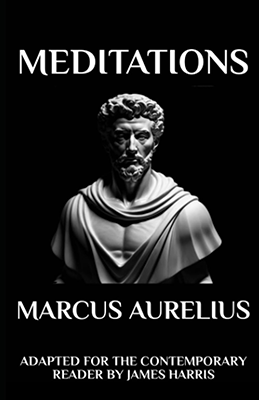Meditations
“Meditations” by Marcus Aurelius is a collection of personal reflections and philosophical musings by the Roman Emperor Marcus Aurelius. Written in Greek during his reign, the work is often considered one of the greatest works of Stoic philosophy.
Here’s a brief summary of the key themes and concepts explored in “Meditations”:
1. Stoicism: Marcus Aurelius was a practitioner of Stoicism, a school of philosophy that teaches the development of self-control and fortitude as a means of overcoming destructive emotions. “Meditations” reflects Stoic principles such as acceptance of fate, virtue as the highest good, and living in accordance with nature.
2. Self-Improvement: Throughout the text, Marcus Aurelius emphasizes the importance of self-improvement and self-discipline. He encourages readers to focus on their own actions and thoughts, striving for moral excellence and inner tranquility.
3. Acceptance of Reality: A recurring theme in “Meditations” is the acceptance of the reality of the present moment. Marcus Aurelius advises against dwelling on the past or worrying about the future, instead urging readers to focus on the here and now.
4. Virtue: Central to Stoic philosophy is the concept of virtue, which Marcus Aurelius defines as the highest good. He emphasizes the importance of cultivating virtues such as wisdom, justice, courage, and self-discipline in order to live a fulfilling and meaningful life.
5. The Nature of the Universe: Marcus Aurelius reflects on the nature of the universe and humanity’s place within it. He encourages readers to contemplate the interconnectedness of all things and to recognize their own role in the grand scheme of existence.
6. The Impermanence of Life: Another recurring theme in “Meditations” is the impermanence of life. Marcus Aurelius reminds readers of the fleeting nature of human existence and encourages them to embrace change and accept the inevitability of death.
Overall, “Meditations” offers timeless wisdom and practical advice for living a life of virtue, resilience, and inner peace. It continues to resonate with readers across the centuries, inspiring reflection and personal growth.

